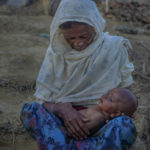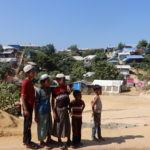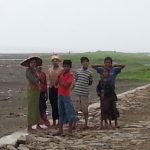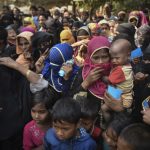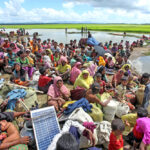Rohingya Genocide Case Against Myanmar Continues in International Court
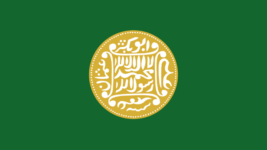
The Arakan Rohingya National Organisation has welcomed the announcement that the United Kingdom and Germany will be intervening in The Gambia versus Myanmar proceedings that are currently before the International Court of Justice.
Filed with the ICJ registrar in November 2019 with the support of the Organisation of Islamic Cooperation, the legal action sees Gambia charging Myanmar with breaching the UN Genocide Convention in terms of its treatment of the Rohingya people in 2016 and 2017.
The case was brought against Myanmar when Aung Sun Suu Kyi’s 2015 elected National League of Democracy Party was still in power. However, the military junta, which ruled the nation for half a century prior to the NLD taking office, retook control of the country in a February 2021 coup.
And last July saw the ICJ reject Myanmar’s initial objections to the case that were put to the court in February. The junta raised four objections, which centred around whether Gambia, a nation not affected by the actions in question, lacks standing to bring the case because of its non-involvement.
Extreme discrimination
The Rohingya are a stateless people who live in Myanmar’s north-western Rakhine state. Prior to the Myanmar military or Tatmadaw unleashing a brutal attack on the mainly Muslim minority in August 2017, an estimated 1.3 million Rohingya lived in the region.
Following the attack, over 900,000 Rohingya fled across the border into refugee camps in Bangladesh.
Tensions between Rakhine state’s majority Buddhist population and the Rohingya have been simmering for decades. And in 2012, sectarian violence broke out, which saw 140,000 Muslims internally displaced, and thousands later trying to flee the country in rickety boats.
The discrimination against the Rohingya people goes much further than their Rakhine Buddhist neighbours though, as was evidenced with the passing of the 1982 Citizenship Law, which failed to recognise the Rohingya as a distinct group in the country, rendering them stateless.
Gambia claims that “against the backdrop of longstanding persecution and discrimination”, the Tatmadaw commenced “clearance operations” in Rakhine in October 2016, which involved genocidal acts, including mass murder, rape and the systematic destruction of villages by fire.
“From August 2017 onwards, such genocidal acts continued with Myanmar’s resumption of ‘clearance operations’ on a more massive and wider geographical scale,” the Gambian application to the ICJ reads.
The crime of genocide
Adopted by the UN General Assembly in December 1948, the Genocide Convention defines the crime as any one of five acts perpetrated against a national, ethnic, racial or religious group with intent to destroy it, in whole or in part.
The five acts defined as genocidal in nature are killing members of a group, subjecting them to serious bodily or mental harm, inflicting conditions calculated to cause their physical destruction, the prevention of births or forced child removals.
The ICJ released its determination on Gambia’s application or memorial on 22 July, in which it found that the court has jurisdiction to proceed with the case based on article 9 of the Convention, and it set the date of 24 April next year, as a deadline for Myanmar to file a counter-memorial.


